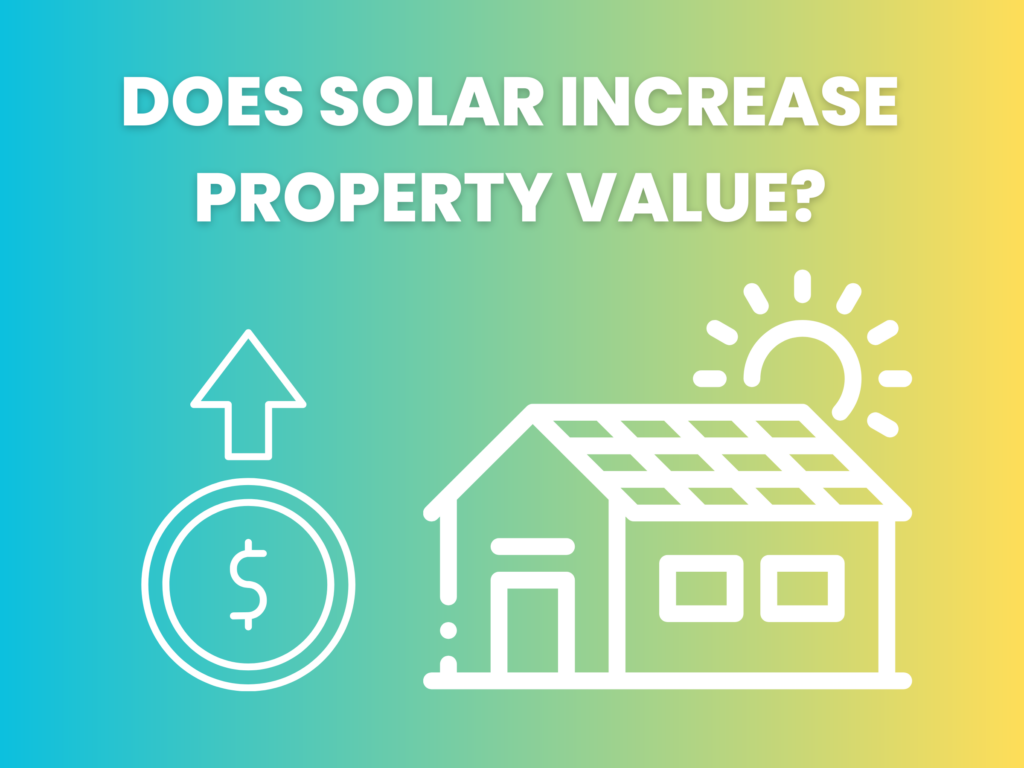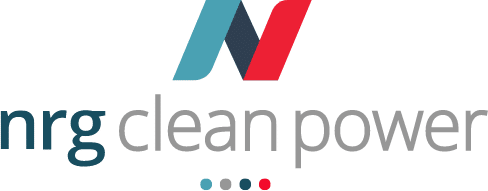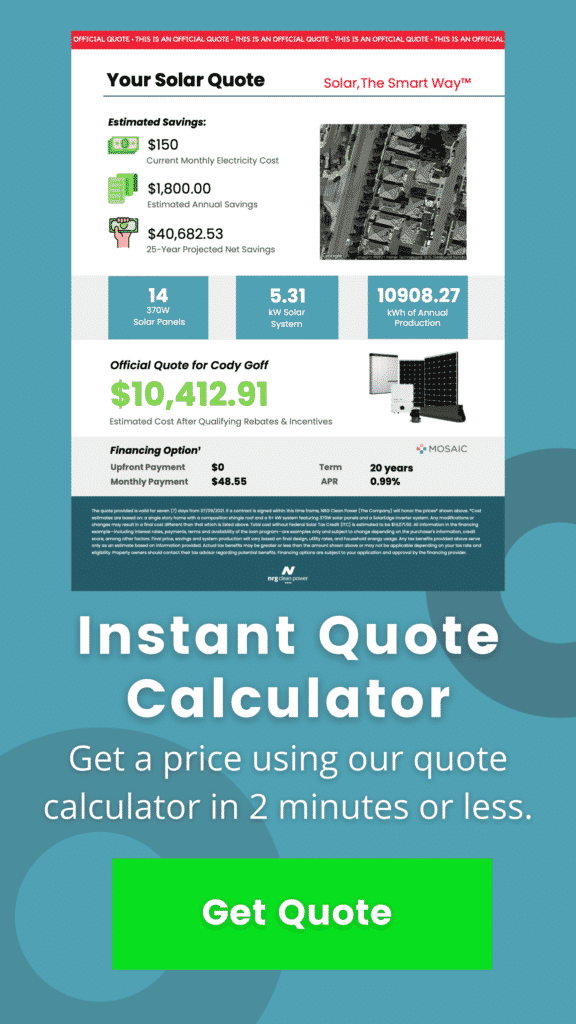
A cleaner, more sustainable future relies on renewable energy sources. And solar panels have made green energy more accessible to homeowners than ever.
Going solar has the dual benefit of helping the planet while lowering energy expenses in the long run. Growing numbers of Americans are choosing the environmentally friendly, cost-effective method of powering their homes with solar energy.
A survey conducted in January 2022 by the Pew Research Center found that 8% of United States homeowners have already installed solar panels in their homes, while 39% have seriously considered it.
The US Energy Information Administration (EIA) also reported a 34% increase in residential solar panel installation in 2021 alone. According to EIA data, the total residential solar capacity in the country had already reached 3.9 gigawatts in 2021.
The numbers don’t lie: Solar panel installations on residential buildings will be a common sight in years to come. Though the initial costs of installation might seem steep, the benefits provide worthwhile returns on the investment in the long run.
And apart from being good for the environment and your energy bills, another compelling reason to install solar panels is that they can increase your home’s market value.
As solar panel technology becomes more affordable and accessible, property buyers will start including it in their list of must-haves for their next purchase. Solar panels are an incredibly attractive addition to a home, as they promise the benefits of clean energy and reduced costs. Having a future-centric, sustainable source of power will allow you to demand a higher price in the real estate market.
How Solar Panels Can Boost Home Value
A solar energy system is a practical and desirable feature for many reasons. From a real estate market standpoint, it will significantly impact your property’s price as much as other utilities, like plumbing and roofing.
Add this to the long-term savings on energy bills; it’s easy to recoup the cost of installing a solar energy system even if you end up selling your home.
The US Department of Energy’s (DOE) Berkeley Lab studied solar homes in eight US states from 2002 to 2013. This decade-long study found that buyers were happy to shell out as much as $15,000 more for homes with solar panels installed compared to those without.
The National Renewable Energy Laboratory (NREL) also conducted a study that showed that it is possible to estimate how much value a solar energy system adds to a property. This is done by calculating the amount of savings on power bills. The study, published in The Appraisal Journal—a publication for the largest professional association of real estate appraisers in the US—found a yearly saving of $1 equates to a $20 increase in property value. So if your solar energy system saves you $1,000 on energy bills each year, it also adds an impressive $20,000 in property value to your home.
Housing trend reports also show prospective homebuyers are increasingly concerned about energy efficiency. Solar panels provide the best solution to these concerns.
As the real estate market embraces renewable energy sources, solar panels will play a significant role in determining the property value of a home.
Factors Affecting Added Value of Solar Panels
Solar panels will undoubtedly increase the property value of a home—the only question is, by how much?
The degree to which your solar energy system can raise your home’s property value depends on several factors. We take a look at the most important ones below.
Solar Market
Each state has a different approach to encouraging solar energy adoption. Some have lent wholehearted support to homeowners looking to offset the cost of going solar. They have enacted laws and offered attractive financial incentives for homeowners to adopt solar energy systems.
Naturally, solar panels and energy will add more value to homes in states with a healthy solar market.
The Solar Energy Industries Association (SEIA) has ranked states based on the cumulative solar electric capacity installed through 2022. The following states have the highest capacity and are the most promising markets for solar energy in the country:
- California: 39,729 MW of solar energy in 10,748,338 homes
- Texas: 17,247 MW of solar energy in 1,957,307 homes
- Florida: 10,111 MW of solar energy in 1,195,212 homes
- North Carolina: 8,179 MW of solar energy in 949,781 homes
- Arizona: 6,330 MW of solar energy in 974,221 homes
- Nevada: 5,336 MW of solar energy in 910,572 homes
- Georgia: 5,033 MW of solar energy in 572,815 homes
- New Jersey: 4,411 MW of solar energy in 705,165 homes
- Virginia: 4,286 MW of solar energy in 476,108 homes
- New York: 4,259 MW of solar energy in 711,327 homes
Local Electricity Rates
Transitioning to solar energy is highly attractive to homebuyers in areas where energy bills are higher. The EIA has found that the average household energy bill across the country is $117.46 per month. But there are many states where monthly bills are significantly higher.
Research conducted by SaveOnEnergy, a Texan company specializing in renewable electricity solutions, tracked household spending on electricity throughout the country.
The states with the highest average energy bills were:
- Hawaii
- Connecticut
- New Hampshire
- Massachusetts
- Rhode Island
The states with the lowest average energy bills were:
- Utah
- New Mexico
- Wyoming
- Montana
- Nebraska
Solar Energy System Ownership
The legal ownership of a home’s solar energy system directly affects its property value. Residential solar energy systems are either owned outright by the homeowner or leased from the solar company.
For those who own their solar energy system outright, it can be included in a home sale with no complications. However, systems on lease from a solar company cannot legally be included in a property sale.
Homeowners with leased solar energy systems can navigate this hurdle by buying out the remainder of their lease or transferring the contract to their buyer. Buying out a lease could incur a significant cost, depending on the amount of time left on it. Transferring the lease requires the buyer to pass a credit check and meet any qualifications the solar company may have.
Solar Energy System Condition
The average lifespan for a solar energy system is 25 to 35 years. Newer systems will add greater value to a home, as the buyers can enjoy its benefits for longer before needing to upgrade.
Conversely, if a home’s solar energy system is several years old, the value increase in terms of property value is relatively lower.
How Do Solar Panels Affect Property Tax?
Installing solar panels also increases property tax. This is a natural outcome of raising the property value of a home.
Depending on where you live, you may be able to avail of tax exemptions for solar owners. More than 30 states offer a property tax exemption for solar energy, and 25 states offer a sales tax exemption. Check your local laws to learn how going solar will affect your tax obligations.
The SEIA reported that in 2022, the residential solar market experienced another record year—the sixth in a row. With a 40% growth in 2022 over 2021, going solar is a trend that is going full speed ahead!

Authored by Ryan Douglas
NRG Clean Power's resident writer and solar enthusiast, Ryan Douglas covers all things related to the clean energy industry.
Links & Sources
–
https://www.eia.gov/todayinenergy/detail.php?id=53679
–
https://emp.lbl.gov/news/berkeley-lab-illuminates
–
https://www.nrel.gov/docs/fy08osti/42733.pdf
–
https://www.seia.org/research-resources/top-10-solar-states-0
–
https://www.eia.gov/electricity/monthly/epm_table_grapher.php?t=epmt_5_6_a
–
https://www.saveonenergy.com/resources/electricity-bills-by-state/
–
https://www.seia.org/initiatives/solar-tax-exemptions
–


